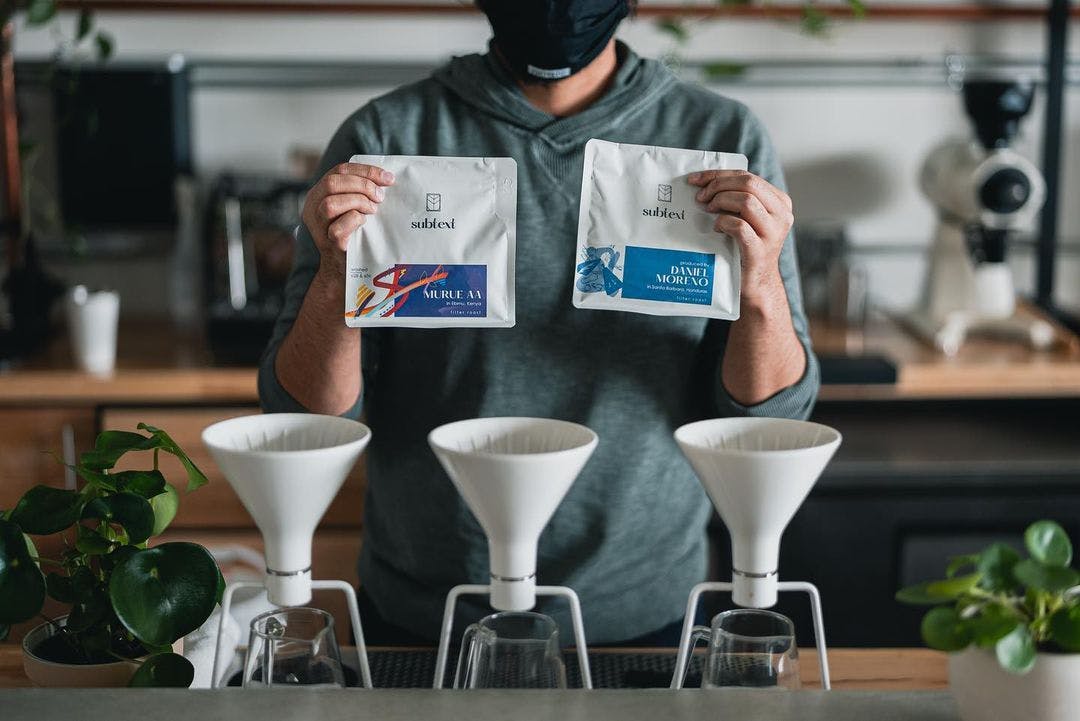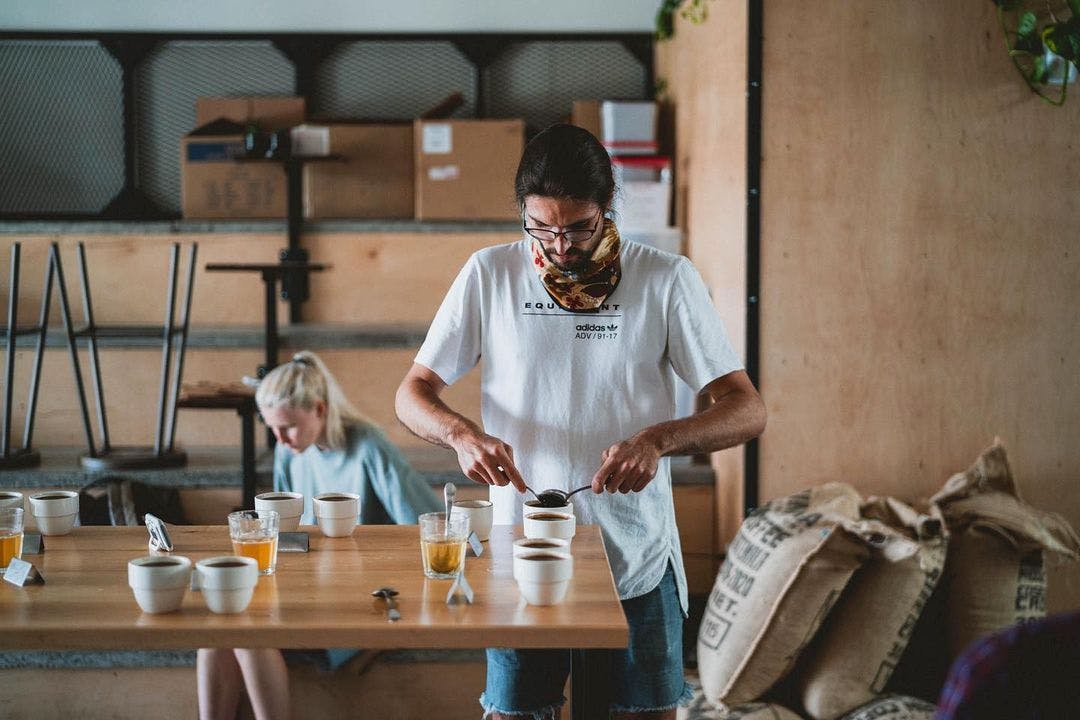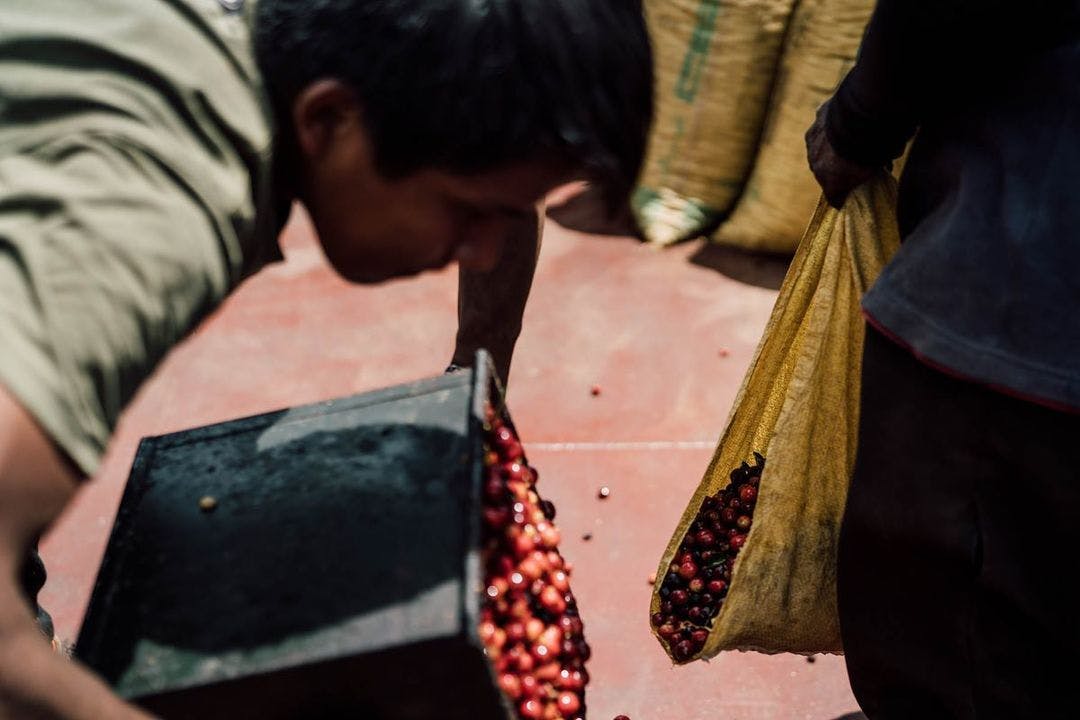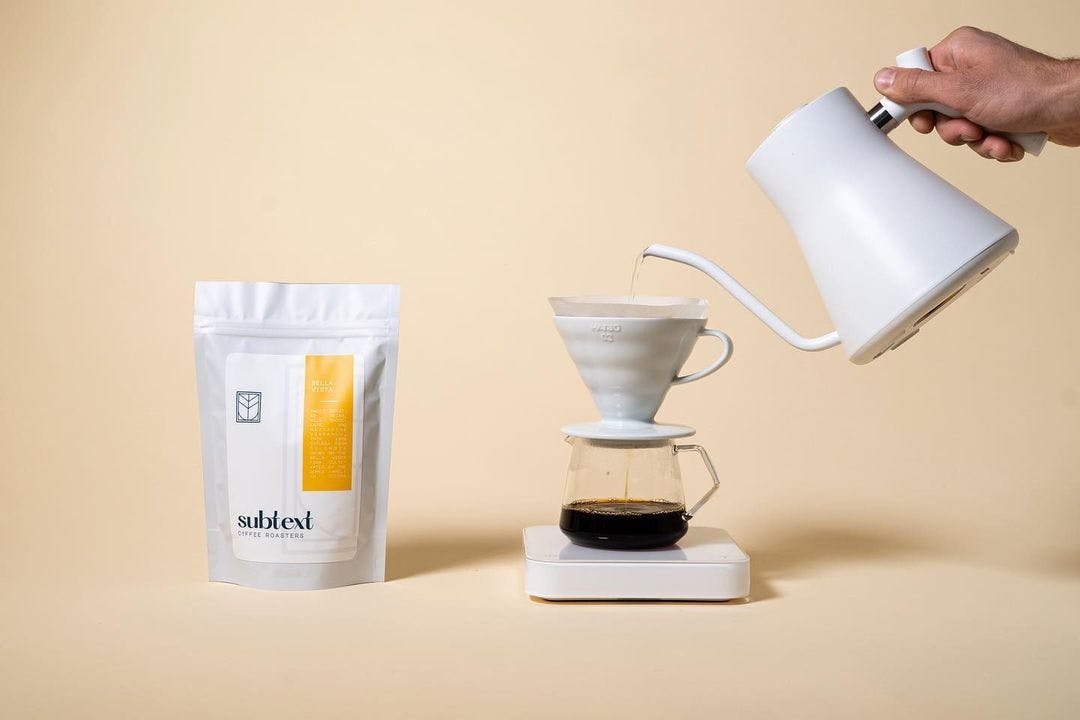
Do you know where your coffee really comes from? Many people may think they can answer that question with a resounding "yes," but in reality, there is far more that goes into a fragrant bag of fresh beans than meets the eye. Subtext Coffee is here to change the narrative around coffee and educate Torontonians, and consumers as a whole, about the importance of integrity, justice and representation within the coffee industry.
Subtext Coffee, a group of passionate coffee professionals in Toronto who ventured into roasting their own beans at the beginning of 2020, found themselves launching (and pivoting) their business at the start of the pandemic. Co-owner Alex Castellani, who is also part of the Boxcar Social founding team, says that Toronto's underdeveloped coffee scene (in terms of quality) and lag to bring in micro-roasters were motives behind the formation of Subtext, and the existing connections and capital tied to Boxcar made it financially feasible. More importantly, after years of sourcing coffee for the cafe, Castellani felt a lack of direct involvement with the farmers and a desire to contribute to and understand the roasting process in a more concrete way. However, he maintained underlying hesitations in starting a micro-roastery of their own due to production difficulties and concern over impacting the relationships with Boxcar's existing partners. Ultimately, though, he and his team felt that the need for connectivity to responsible coffee production, their desire to show transparency and the opportunity to educate the public outweighed the risks. Thus, Subtext was born.

The goal of Subtext Coffee is multi-faceted and nuanced, as evidenced by chatting with Alex. His passion for coffee clearly reaches far beyond the taste (though he notes the critical importance of delivering a sweet and complex cup of coffee) and stems from aspects like community building, financial security, responsible sourcing and regional transparency. "It's a complex industry," he explains, "and we are still just scratching the surface. It is intimidating in a way, but it's also exciting - to have that kind of agency is empowering." The educational aspect of the beans that they roast at Subtext is crucial not for the purpose of tasting notes or exclusivity, but rather as a way to use the sensory experience to connect people to the regional representation, origins and human labour behind the bean production. Building that connectivity is integral to the values of Subtext and the purpose that drives their business.

With significant experience in both the food and wine scenes, Castellani acknowledges their striking similarities to the coffee industry, both in production and sensory experience. What many people likely don't think of when it comes to coffee is the fact that it is an agricultural product, thereby making crop biodiversity and sustainability as relevant in this sense as it is for ingredient-driven, farm-to-table restaurants or low-intervention wines. In contrast to the wine industry in particular, however, Castellani makes a point to mention his desire to decouple coffee from the elitist reputation it has gained over the years. High-quality coffee, he says, can simply be regarded as a sweet and flavourful beverage, even if you can't pick up on the particular complexities of the bean.

In terms of the product, Castellani describes the wide range of bean offerings at Subtext, from wild, tropical and funky (again, thinking of parallels to the natural wine movement) to smooth and chocolatey. "The beautiful thing is that we don't have to be put into a box," he explains. "We are inherently open to the widest flavour articulations possible." Cost is one facet that may raise eyebrows, but Castellani reiterates their insistence on paying fair prices for a product that comes from a destination rooted in slavery and injustice. Their purpose extends far beyond the end product by influencing the entire community that it comes from, contributing to long-term relationships with the producers to build financial security in those regions.

The micro-roaster coffee industry is surely growing by the numbers, but how people react to and understand it is a deeper discussion. As Castellani points out, "some people don't care and never will, and some people are already into it. But there is a huge middle ground -- the people who are accessible, but haven't yet been reached in a mass sense." He explains the misunderstanding brought on by an industry that lumps various parts together with little clarification. To illustrate this, he asks, "what is the connection between a cappuccino [that showcases] beautiful latte art, and a black coffee that is all about the regional transparency behind it?" They are extremely different on a value level, as latte art gets people in the door and brings a sense of "craft" to the industry, whereas the value proposition behind the black coffee can be far more pronounced. Consumers have learned to use trivial markers to decide which cafes to visit, meaning that they are often led to whoever can afford fancy machines and deliver the prettiest latte art. But what are the core values behind the cups we are drinking? In Castellani's eyes, there is a need for coffee roasters within the industry to "reposition and articulate transparency with what we want to accomplish in the industry, and hope that that is meaningful enough for people to get on board." It's about breaking through the noise and the façade, gaining stronger agency and properly articulating value propositions and orientations, all of which Subtext strives towards.

The initial plan for Subtext was to double as an educational space where they would host workshops and courses for the public. Of course, due to the events of 2020, they had no choice but to open as a warehouse-only space. Still, Castellani can appreciate the positive angle of this and chooses to see it as a sort of "blessing in disguise" that allowed them to build their brand and get a strong handle on their production capabilities. Clearly, the company has some hefty goals geared towards consumer education and industry restructuring, but none of it can happen overnight. In a sector that has been influenced by many years of culture and tradition to reach its current standing, we can't expect (nor should we want) things to change quickly. At Subtext, the hope is to move with trepidation and remain conscious of uprooting an industry while providing the right resources, highlighting the people and processes behind roasting, and teaching consumers exactly what constitutes their morning cup of coffee -- because knowledge, in this case, is most certainly power.










